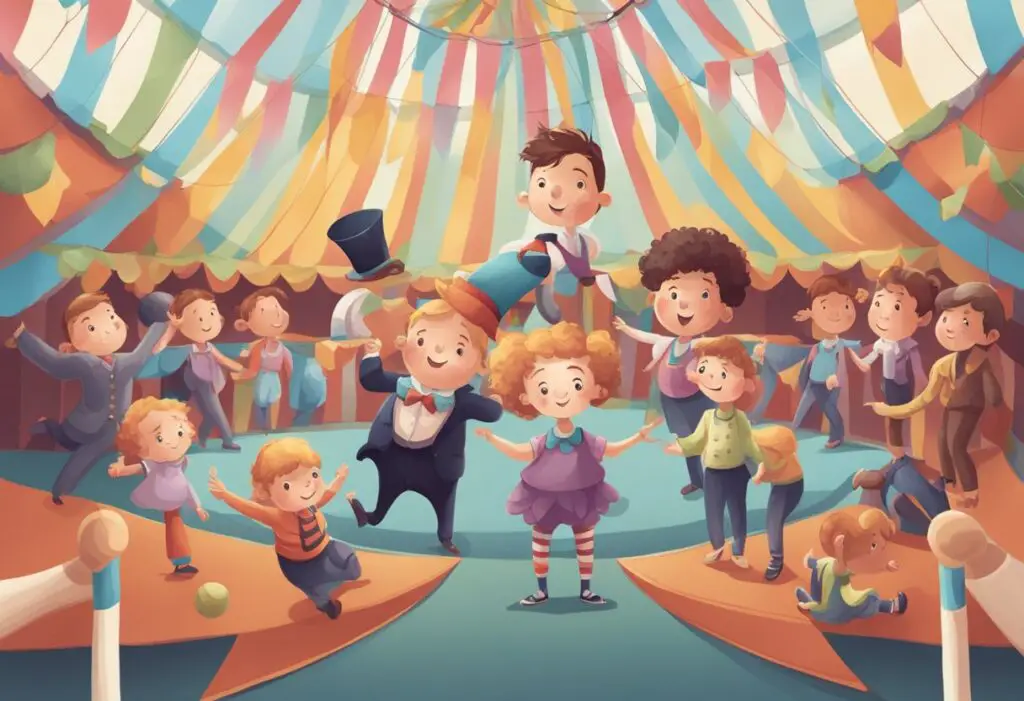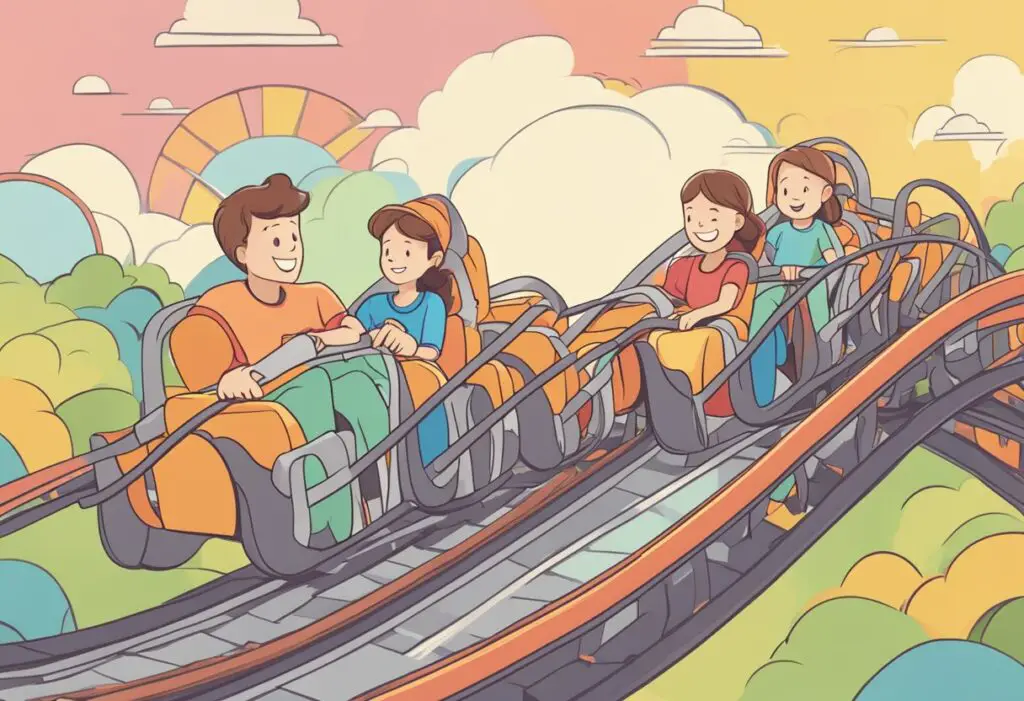So, you’ve got siblings. Whether you’re the oldest, the youngest, or somewhere in between, you know that sibling relationships can be both rewarding and challenging.
But have you ever thought about how your mindset affects those relationships?

Consider this: if you have a fixed mindset, you might see your siblings as competition or feel like you’re constantly being compared to them. On the other hand, if you have a growth mindset, you might see your siblings as allies who can help you learn and grow. By fostering a growth mindset in your family relationships, you can create a more positive and supportive dynamic with your siblings.
But how do you do that? It’s not always easy, but there are some strategies you can try. For example, you can focus on effort rather than innate ability. Instead of thinking, “My sister is just naturally good at math,” you might say, “My sister has worked really hard to improve her math skills.” This can help you see your siblings as capable of growth and improvement rather than fixed in their abilities.
The Circus of Sibling Dynamics

Welcome to the circus of sibling dynamics! Your family is like a big top tent, with each sibling taking on a different role in the show. Some days, it may feel like you’re walking a tightrope, trying to balance everyone’s needs and wants. But fear not; with a growth mindset and some guidance, you can turn your family’s circus into a well-oiled machine.
The Ringmasters: Parents and Their Pivotal Role
As the ringmasters of the family circus, parents play a pivotal role in shaping sibling dynamics. They set the tone for how siblings interact with each other and how conflicts are resolved. It’s important for parents to model effective communication, active listening, and empathy. By doing so, they can foster a growth mindset in their children and teach them how to work through conflicts in a healthy way.
On the other hand, ineffective parenting can lead to sibling conflict and rivalry. Differential treatment, such as favoritism or harsher discipline for one sibling, can breed resentment and jealousy. It’s important for parents to be aware of their own biases and work to treat each child fairly and equally.
Sibling rivalry is a natural part of growing up, but it can be not easy to navigate. As the acrobats of the family circus, siblings need to learn how to work together and support each other. This can be challenging when there’s competition for attention or resources, but with a growth mindset, siblings can learn to see each other as allies instead of adversaries.
-

Bold Male Pride – Baseball Trucker Cap Celebrating Masculinity
£18.00 Select options This product has multiple variants. The options may be chosen on the product page -

Dad Bod Appreciation Gift Mug
£14.00 Add to cart -

Dad Bod, Bad Jokes Structured Baseball Cap
£22.00 Select options This product has multiple variants. The options may be chosen on the product page
When conflicts arise, it’s important for siblings to practice active listening and empathy. They should try to understand each other’s perspectives and work towards a compromise. Parents can help by providing guidance and support, but ultimately, siblings need to learn how to work through conflicts on their own.
The Jugglers: Balancing Birth Order and Personality
Birth order and personality can also play a role in sibling dynamics. As the jugglers of the family circus, siblings need to learn how to balance their own needs and wants with those of their siblings. Older siblings may feel pressure to be responsible and take care of younger siblings, while younger siblings may feel overshadowed or ignored.
It’s important for parents to recognize and celebrate each child’s unique personality and strengths. Siblings should also be encouraged to pursue their own interests and hobbies, even if they’re different from their siblings. By doing so, they can develop a growth mindset and learn to appreciate each other’s differences.
In conclusion, the family circus can be a wild ride, but with a growth mindset and some guidance, siblings can learn to work together and support each other. Parents play a pivotal role in shaping sibling dynamics, but ultimately it’s up to siblings to learn how to navigate conflicts and balance their own needs and wants. So grab your popcorn and enjoy the show!
The Rollercoaster of Growing Up Together

Growing up with siblings can be a wild ride, full of ups and downs. One minute, you’re sharing a laugh over a silly joke, and the next, you’re fighting over who gets to use the bathroom first. But despite the chaos, your siblings can have a profound impact on your growth mindset and overall well-being.
The Highs: Social Competence and Support
One of the biggest benefits of sibling relationships is the opportunity for socialization. As children, siblings spend a lot of time together and learn important social skills like sharing cooperation, and conflict resolution. These skills can help you navigate social situations throughout your life, from making friends to building intimate relationships.
Siblings can also provide emotional support during difficult times. When you’re feeling down or struggling with a challenge, a sibling who understands your experiences can be a valuable source of comfort and encouragement. In fact, research has shown that perceived support in sibling relationships is associated with positive adjustment and well-being.
The Lows: The Dark Side of Sibling Relationships
Of course, not all sibling interactions are positive. Negative sibling interaction patterns like jealousy, aggression, and competition can lead to poor adjustment and even antisocial behavior. In some cases, siblings may struggle to get along due to differences in personality or sibling bonds that have been strained over time.
The birth of a sibling can also be a challenging time for older siblings, who may feel displaced or resentful of the attention given to the new baby. This can lead to poor academic engagement and educational attainment, as well as strained relationships with parents.
The Importance of Sibling Relationship Intervention
Despite the potential challenges of sibling relationships, there are many ways to foster positive growth mindsets and strong sibling bonds. Social skills training and interventions that focus on perceptions of sibling qualities can help siblings learn to communicate effectively and build stronger relationships.
It’s also important for parents to recognize the importance of sibling relationships and support positive interactions between siblings. By encouraging siblings to work together and celebrate each other’s successes, parents can help foster a sense of sisterhood or brotherhood that will last a lifetime.
So buckle up and enjoy the ride of growing up with siblings. With a growth mindset and a little bit of effort, you can build strong and supportive sibling relationships that will help you navigate life’s ups and downs with confidence and resilience.
The Game of Thrones: The Impact of Sibling Rivalry
If you’re a fan of the hit HBO series Game of Thrones, you know that sibling rivalry can be a powerful force. From the Lannisters to the Starks, sibling dynamics play a major role in the show’s plot. But how does this relate to real-life sibling relationships? Let’s take a closer look.
The Crown: Achievements and IQ
One common source of sibling rivalry is achievement. Whether it’s academic success, athletic prowess, or artistic talent, siblings may feel pressure to compete with one another. This can be especially true when there is a significant IQ difference between siblings.
As a parent, it’s important to foster a growth mindset in your children. Encourage them to view their abilities as something that can be developed through hard work and perseverance rather than as fixed traits. This can help reduce the pressure to compete and create a more supportive family dynamic.
The Throne: Power Dynamics and Bias
Sibling rivalry can also be influenced by power dynamics within the family. Differential parenting, where parents treat siblings differently, can create resentment and fuel competition. Marital conflict can also play a role, as siblings may take sides and feel pressure to align with one parent over the other.
Another factor that can contribute to sibling rivalry is bias. Birth order can influence how parents perceive and treat their children, which can create a sense of unfairness or favoritism. It’s important to be aware of these biases and work to create a more equitable family environment.
In conclusion, sibling rivalry is a complex issue that can be influenced by a variety of factors. By fostering a growth mindset and working to create a more supportive family dynamic, parents can help reduce competition and promote healthy sibling relationships. So, if you’re looking to avoid the drama of the Game of Thrones, it’s time to start fostering a growth mindset in your family.
The Magic Potion: Fostering a Growth Mindset
Are you tired of the constant bickering and fighting between your children? Do you wish they would just get along and support each other? Well, have no fear; the magic potion for fostering a growth mindset in sibling relationships is here!
The Ingredients: Protective Factors and Positive Adjustment
To create this magic potion, you will need a few key ingredients. First, you will need some protective factors. These can include things like parental monitoring, positive reinforcement, and a supportive family environment. By creating a safe and supportive home, your children will feel more secure and be more likely to develop a growth mindset.
Next, you will need some positive adjustments. This means helping your children develop the skills they need to cope with difficult situations. Encourage them to talk about their feelings, teach them problem-solving strategies, and help them build resilience. By developing these skills, your children will be better equipped to handle challenges and setbacks.
The Spell: Intervention Programs and Their Effectiveness
Now that you have your ingredients, creating the magic potion is time. One way to do this is through intervention programs. These programs can help siblings learn to communicate effectively, resolve conflicts, and support each other. They can also teach children how to develop a growth mindset and view challenges as opportunities for growth.
Research has shown that sibling relationship intervention programs can be effective in promoting positive adjustment and reducing risk factors for problem behavior, such as conduct disorders and substance use. These programs can also improve sibling relationships and reduce psychological control and coercive family processes.
So, there you have it, the magic potion for fostering a growth mindset in sibling relationships. With a little bit of effort and the right ingredients, you can create a supportive and positive environment that will help your children develop the skills they need to thrive.
The Unexpected Twists and Turns

Growing up with siblings can be an adventure full of unexpected twists and turns. From sibling rivalries to sibling alliances, the dynamics of family relationships are always in flux. As you navigate the ups and downs of your family system, it’s important to maintain a growth mindset and stay open to new possibilities.
The Plot Twist: Impact of Non-Traditional Family Structures
In today’s world, families come in all shapes and sizes. Whether you’re part of a blended family, a same-sex couple raising children, or a single parent household, your family structure can have a significant impact on your sibling relationships. Research shows that children in non-traditional family structures may experience more conflict with their siblings, but they also tend to be more resilient and adaptable.
So, if your family structure is a little different from the norm, don’t worry. Embrace the unique challenges and opportunities that come with your situation, and remember that your growth mindset can help you navigate any plot twists that come your way.
The Cliffhanger: The Influence of External Factors
Of course, family dynamics are not solely determined by your family structure. External factors like neighborhood disadvantage, abusive home environments, and adolescent drug use can all have a significant impact on your sibling relationships. Even as adults, factors like smoking and other unhealthy behaviors can strain relationships with siblings.
But here’s the good news: a growth mindset can help you overcome these challenges and build stronger relationships with your siblings. By approaching each situation with an open mind and a willingness to learn and grow, you can overcome even the most difficult obstacles and emerge stronger on the other side.
So, as you navigate the twists and turns of your sibling relationships, remember to keep a growth mindset and embrace the unexpected. With the right attitude and approach, you can build strong and lasting bonds with your siblings that will stand the test of time.







